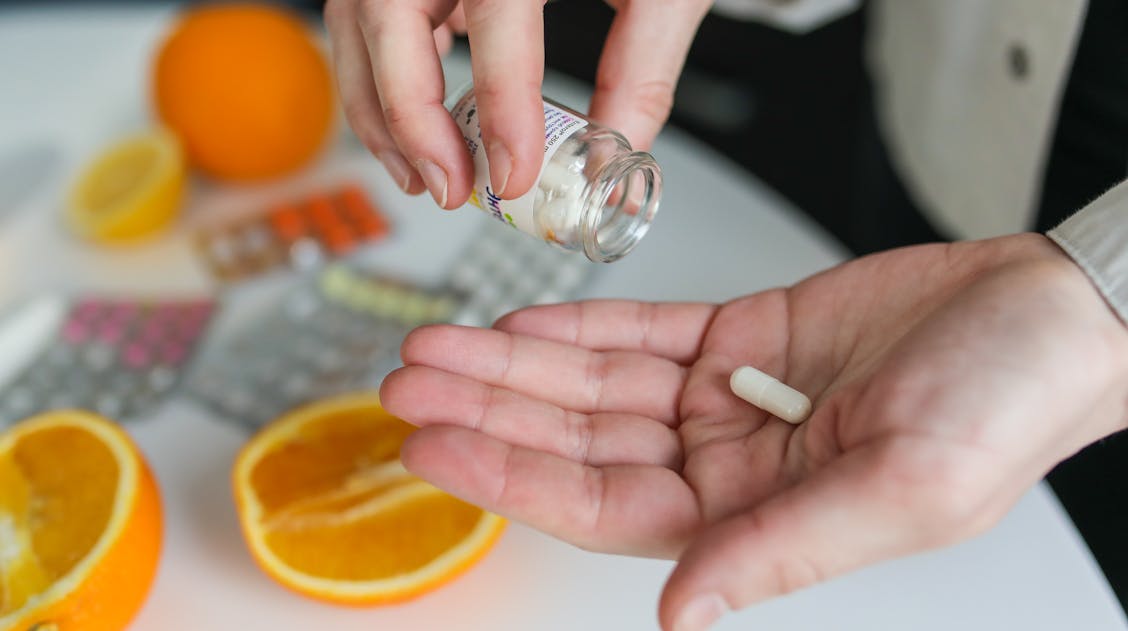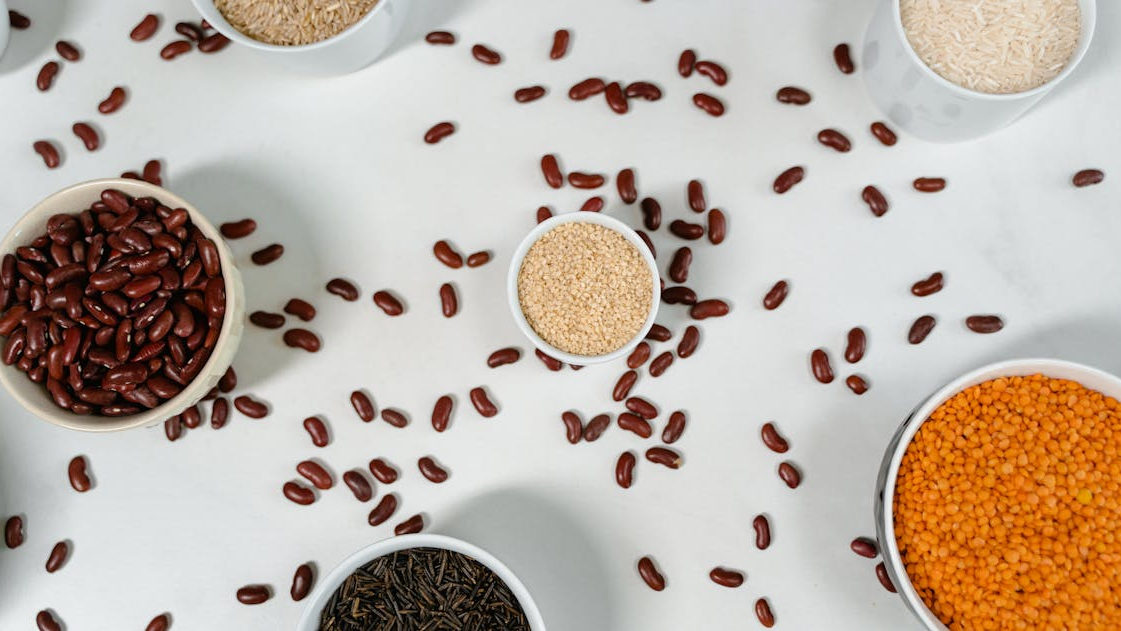
Probiotics for Health
Researchers have long linked gut health to overall health, and it can impact the body and well-being in many ways. It can directly affect mental health as well as the gastrointestinal, cardiovascular, and endocrine systems. Since the establishment of the Common Funds Human Microbiome Project in 2012, a lot of important research and data have emerged. As the volume of research and data in this area grows, it demonstrates how important gut health is for our overall health. This research has not gone unnoticed, as gut health continues to be a major trend in health and well-being. Maintaining a balanced community of gut microbes is crucial for gut health. So much so that specific nutritional supplements known as probiotics have been produced to supplement good bacteria in the gut.
This is an attempt to balance the microbiome and prevent the consequences of poor gut health. However, it’s important to always ask for advice from your doctor or healthcare professionals before making any changes to your diet or taking any supplement
In this article, we explore these supplements and look at how MDPI research is contributing to understanding how these supplements can affect and even improve our health.
Consequences of poor gut health
Poor gut health has been shown to contribute to the development of certain conditions and diseases, including type 2 diabetes, obesity, irritable bowel syndrome, irritable bowel disease, and a wide range of cancers. In addition, recent studies have also linked gut health with an increased risk of developing certain neurodegenerative diseases.
Gut health has also been shown to heavily impact the immune system, as 70–80% of immune cells responsible for the activation of the immune response reside in the gut. This can increase the risk of developing certain autoimmune diseases.
What is the human microbiome?
The human microbiome is a community of bacteria that co-inhabit the human body. They have been shown to inhabit specific niches in the human body. This includes the skin, oral cavity, mucosa, gastrointestinal tract, respiratory tract, urogenital tract, and mammary gland.
The human intestinal tract consists of over 1000 species of bacteria and other microorganisms. This is made up of commensal and pathogenic bacteria, which, in a healthy individual, live symbiotically.
However, any changes to this microenvironment caused by lifestyle factors can upset this balance. This includes consuming too much sugar, which can increase the abundance of pathogenic bacteria in the gut.
Most of these factors are difficult to control. Especially as these factors can impact each other. For example, stress can lead to sleep deprivation, which can result in fatigue and a lack of physical activity, as well as the consumption of easy foods such as ultra-processed foods.
In a fast-paced, busy world, it’s difficult to dedicate the time to monitor and strive for good gut health. In addition, the variety of the gut microbiome is personal and influenced by genetic factors. This can make it difficult to understand and make informed decisions regarding gut health.
Because of all these factors, supplements that can help maintain this balance have been produced, known as probiotics.
Probiotic for gut health
Probiotics contain live microorganisms that, when taken consistently, can repopulate the beneficial microorganisms in the microbiome, regaining a healthy balance. They have several mechanisms that help them regain a healthy balance, including regulating the immune system by reducing intestinal pH.
This changes the microenvironment, making it unfavourable for certain pathogens and reducing their growth and reproduction. Additionally, probiotics can strengthen the intestinal barrier, reducing the risk of damage by pathogenic bacteria and conditions such as leaky gut syndrome.
Leaky gut syndrome occurs when the intestinal barrier is weak and begins to develop large holes or cracks, which allow bacteria that are undigested to pass into the bloodstream. This has been demonstrated to cause inflammation and gut microbiome changes, resulting in a higher risk of developing autoimmune diseases as well as irritable bowel syndrome.
This prevents the overcrowding of opportunistic and pathogenic bacteria, inhibiting cellular damage and reducing inflammation, which can aid in modulating the immune system.
Probiotic research
Probiotics have a lot of potential for providing preventative options for certain diseases. Because of this, there is a wide range of research investigating its potential uses.
Probiotics for the treatment of disease
A recent MDPI review, published in Microorganisms, indicates that the effects of probiotics have been studied for various conditions. This includes gastrointestinal conditions as well as atopic eczema, obesity, type 2 diabetes, autism and burns.
The review demonstrates that certain stains of probiotics have greater efficiency at preventing some diseases and conditions than others. For example, they identified substantial evidence that shows strains such as Saccharomyces boulardii and Lactobacillus rhamnosus are successful in preventing travellers’ diarrhoea and treating acute children’s diarrhoea. However, they lacked efficiency in reducing the duration of acute diarrhoea in adults.
They also discuss the use of probiotics to treat burn wounds. Burn wounds can be very susceptible to infection. This is because the skin is the first barrier of defence against infection; without it, pathogenic bacteria can easily access the body.
The review highlights a study which uses probiotic-containing dressings containing the Lactiplantibacillus plantarum strain to treat burn injuries. This was an effective approach which did improve the healing of the burn injury. However, there were limitations associated with the application, dosage, and maintaining the stability of the strain.
The review concludes that probiotics do have the power to prevent certain conditions and improve overall health. However, they identify that future research needs to identify the optimal dosage for specific strains and to identify their overall role in health and disease, be it preventative or to improve health.
Probiotics as candidates for alternatives to antibiotics
Another review published in Encyclopedia in 2023 also discusses the use of probiotics as an alternative to antibiotics.
Antimicrobial Resistance
Antimicrobial resistance is a huge problem. Antibiotics have become excessively and inappropriately overused. Because of this, some microbes have developed resistance genes against various types of antibiotics. This prevents the antibiotic from killing the bacteria or preventing it from multiplying and causing further infection. One example of this is methicillin-resistant Staphylococcus aureus (MRSA), which has become one of the leading causes of hospital-acquired infections. Staphylococcus aureus is commonly found on the skin. It’s usually harmless but because of antimicrobial resistance, it has become difficult to treat and now has the potential to cause serious and in some cases life-threatening infections.
Antibiotics are crucial in the treatment of bacterial infections but are becoming increasingly used for other conditions. In addition, they are also commonly misused, as courses of medication are not being followed responsibly. Because of this, scientists are desperately seeking other treatment options.
Probiotics can inhibit pathogenic bacteria
Probiotics are a natural candidate as they can directly inhibit pathogenic bacteria. They do this by modulating the immune system, competitively excluding pathogenic bacteria, and strengthening the intestinal barrier. The researchers discuss evidence that suggests that probiotics can be used to treat complications associated with Candida infections.
In particular, they mention the probiotic yeast strain Saccharomyces boulardii and how various studies have documented positive effects in the treatment of these complications. In addition, they also state that probiotic strains, Lacticaseibacillus and Bifidobacterium, have shown success in treating Salmonella infections in chicks by competitive exclusion.
The review concludes that there is plentiful evidence that supports the use of probiotics to treat various bacterial infections by inhibiting both human and animal models through experimental models and clinical trials. However, they note that further research needs to be done to establish greater cell viability and dose optimisation.
Probiotics to treat the symptoms of Autism Spectrum Disorder
Autism Spectrum Disorder (ASD) refers to a group of neurodevelopmental conditions. Studies have recently shown that those with ASD experience gastrointestinal issues caused by an imbalance of the gut microbiome. Research shows that children with ASD often exhibit increased Firmicutes (36–81%) and Pseudomonadota (78%) and decreased Bacteroidetes (56%) species in the gut microbiota.
This is suggested to contribute to some of the other symptoms reported in ASD. This includes emotional and behavioural traits associated with ASD. Because of this, it’s suggested that there is a strong link between the gut and brain known as the gut-brain axis. This is further supported by neuropsychiatric and neuroimmune disorders, which are associated with gut microbiome imbalance, including anxiety and depression. Probiotics could help treat some of the symptoms in these conditions, particularly the gastrointestinal symptoms.
A review published in Nutrients investigates the effects of probiotics on ASD in children. They identified that various studies show that certain strains of probiotics show promise in alleviating some of the effects of both behavioural and gastrointestinal symptoms in ASD.
This includes the strains Lactobacillus, Bifidobacterium, and Streptococcus. In addition, studies also demonstrated that these strains helped to balance the Bacteroidetes/Firmicutes strain ratio. However, the review also stated that gut microbiome research in ASD is limited by several factors, including the complexity of the gut microbiome, which can be difficult to study. It also highlights variability in methodologies, study populations, and lack of standardised protocols, which affect the quality of research. The review concludes that large-scale, controlled studies are needed in this area.
Risks associated with probiotic supplementation
As well as recognising the potential benefits of probiotic use, it is also important to understand the associated risks.
Probiotics are regulated as foods, not drugs. However, they can cause mild side effects such as bloating, diarrhoea, constipation, nausea, thirst, headaches and migraines, and skin reactions.
One serious point to consider is that probiotics are living organisms that can cause infections of their own, which may need to be treated by antibiotics. In addition, individuals with underlying conditions and those taking certain medications are at higher risk of infection. This includes organ transplant patients on anti-rejection medications.
Summary
Probiotics have a lot of potential in the treatment of specific symptoms for a wide variety of diseases. However, there is a need for more large-scale, high-quality studies that investigate the highly complex gut microbiome as well as the links between the gut–brain axis.
If you’re interested in reading more about the microbiome and how it can influence overall health, see our recent article on the oral microbiome.










